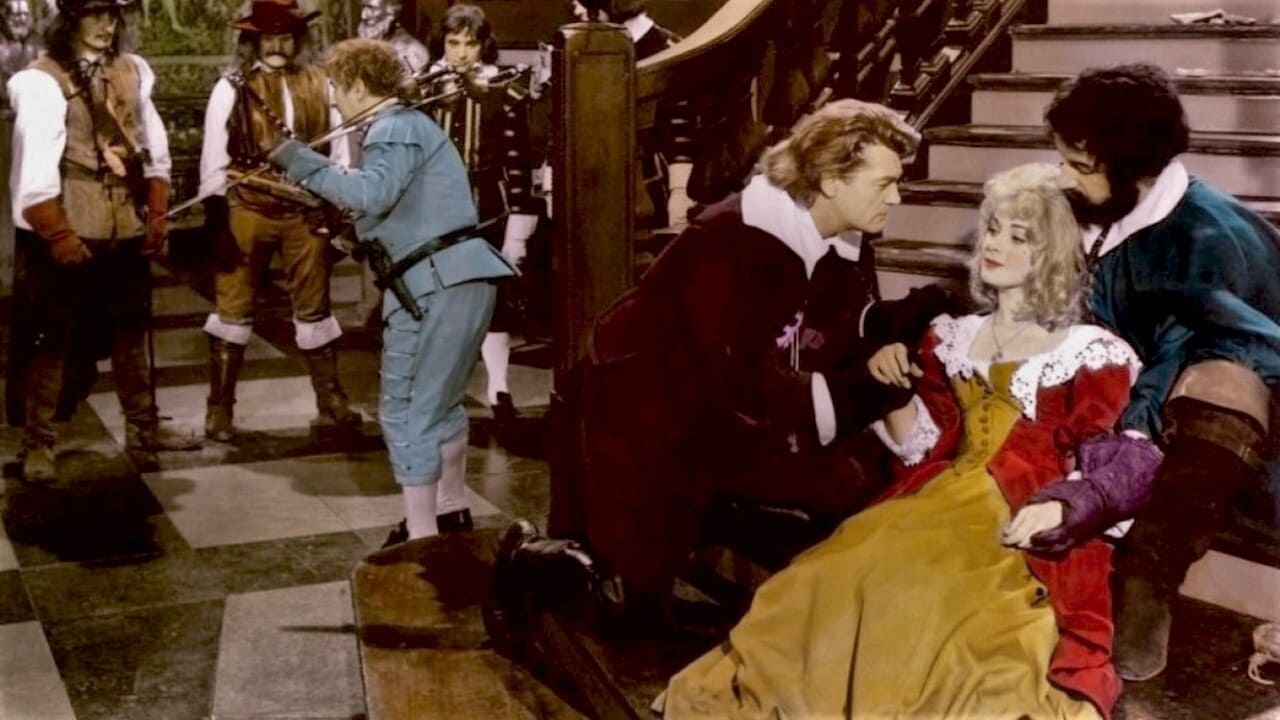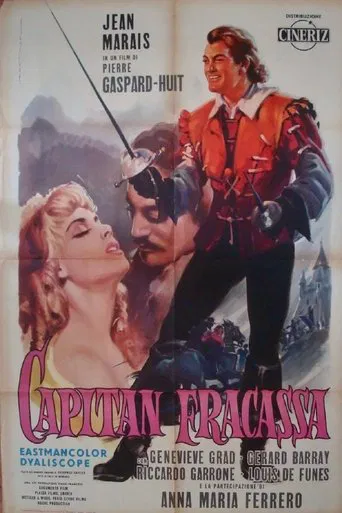

Very well executed
... View MoreBoring, long, and too preachy.
... View MoreIt is both painfully honest and laugh-out-loud funny at the same time.
... View MoreAll of these films share one commonality, that being a kind of emotional center that humanizes a cast of monsters.
... View Morejust nice. for cast. for clothes and atmosphere. for solutions of adaptation. for charm. but , after its end, it remains only nice. slice of a period art, French at all, almost a Gauthier, it is the kind of innocent delight film. not serious or profound,convincing or extraordinary, wise or full of nuances. only a game , crumbs of literature, good actors acting for pure joy and a director for who measure is basic rule. nothing more. but it is enough ! because the film remains fresh and the performance touching. because it is only joke. and good occasion to remember not only the silhouettes of great names of French art but a dusty novel of an old age.
... View MoreEntertaining, colorful romp from a much-filmed source including three versions by distinguished film-makers: in 1929 (directed by Alberto Cavalcanti; available on DVD from Image), 1943 (directed by Abel Gance) and 1990 (directed by Ettore Scola; I actually watched this one some time ago, and I recall it being more of a meditative fantasy on role-playing than the unassuming romantic swashbuckler the 1961 film under review emerges to be!).Jean Marais looks more at home here than he did in PONTIUS PILATE (1961), which preceded this viewing: he's typically dashing and athletic and, despite being 48 years old, is said to have done all his own stunts. Since the plot revolves around a traveling theatrical troupe and culminates in a revelation which links one of its members to the villain of the piece, it probably influenced Rafael Sabatini's classic "Scaramouche" (itself filmed numerous times, and whose titular figure even makes a fleeting appearance at one point in the film!). This version, then, suffers from generally uninspired handling (it doesn't help that I'm not at all familiar with the director) though the plentiful action sequences are admittedly energetic.Leading lady Genevieve Grad is decent enough (although the supporting role of the gypsy girl Chiquita, played by Joelle La Tour, is a far more interesting character) and Gerard Barray appropriately slimy as Marais' nemesis. The supporting cast, luckily, features a number of reliable character actors among others, Philippe Noiret, Louis De Funes, Riccardo Garrone (his duel at night with Marais is a definite highlight) and Jean Rochefort; interestingly enough, rather than showing the film's happy ending in full, all four actors are involved in a mocking re-enactment of it! Finally, however, the film is overlong since we also get too many subplots and contrived situations for instance, Chiquita (who, with her lover, had intended to rob the troupe) and a couple of hired assassins (Garrone and Rochefort) conveniently reform and decide to help in the hero's cause!
... View MoreThe 1955-65 era was the French swashbuckler heyday and Jean Marais was the hero of that generation.He had given up his artistic ambitions of the Cocteau period ("la Belle et la Bete" " les parents terribles" ),but his panache and his charisma remained intact.Pierre Gaspard-Huit is not much of a director ,but it's adapted from a Theophile Gautier novel and there's a good cast featuring Louis de Funes and Gerard Barray (later,Duvernois in "abre los oyos")who was some Marais 's alter ego and who plays the villain here.The ending is melodramatic to a fault -but so was Gautier's novel-and anyway Marais's acrobatic feats (no stunt double,what contemporary actor can say the same?)are all that counts.
... View More